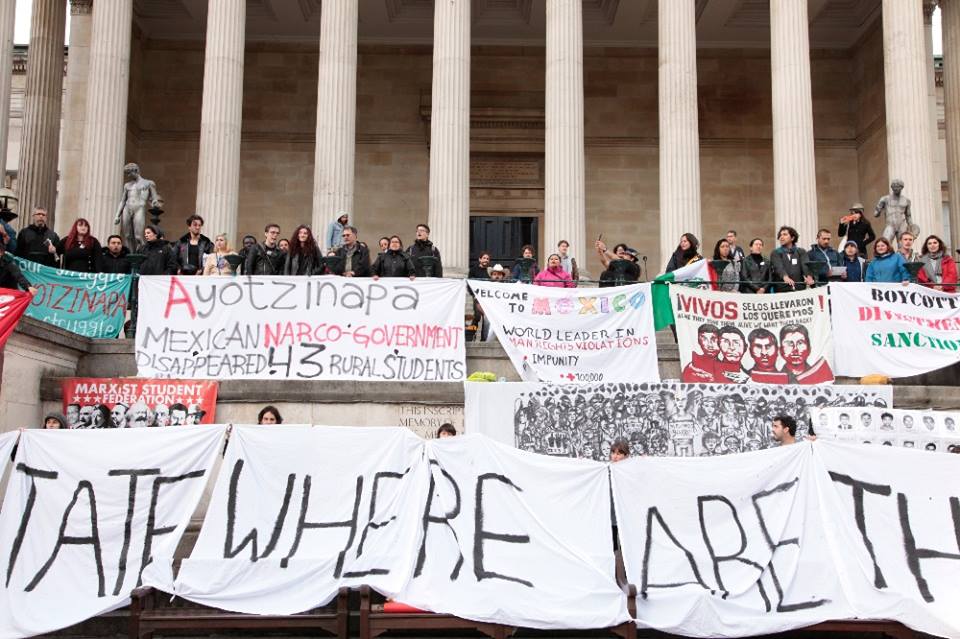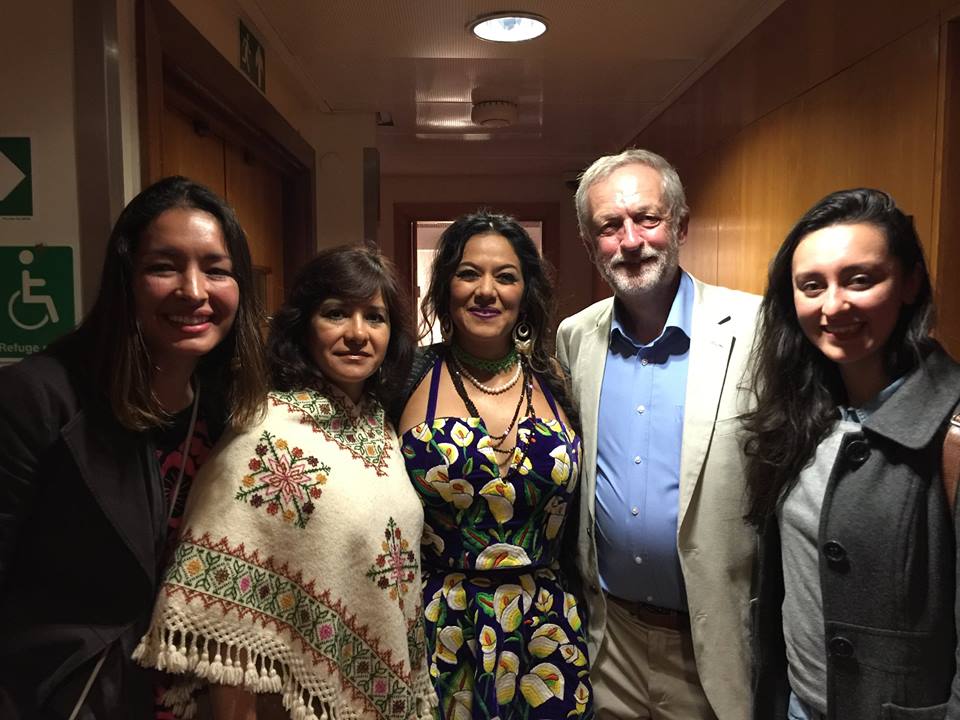“Justice is only there for those who can pay for it and with the country being incredibly unequal, that’s only a minority.”
The war on drugs in Mexico has been going on for over a decade — starting with former President Felipe Calderon in 2006 and now carried on by his successor, President Enrique Peña Nieto.
The government initiated the war with the promise of ending cartels, violence and crime — but the crackdown has led to human rights violations, more than 80,000 casualties and at least 28,000 reported disappearances.
One of the most evident cases of rising brutality was the 2014 kidnapping of 43 Mexican students from Aytozinapa college who, according to a report by the Inter-American Commission on Human Rights (IACHR), were intercepted by the police, forced to enter their squad cars and never came back to their homes.
Justice Mexico Now
The reason behind the disappearances is still unclear. The government claims the police mistook the students for a group of drug traffickers — but many Mexican citizens, in particular the families of the missing, don’t believe this explanation. They think this version of the story is a way to cover up the involvement of the government and authorities.
Their beliefs aren’t unfounded as IACHR found phone records showing how local police were in contact with organised criminal groups at the time of the kidnapping.
Lila Caballero, spokeswoman for the UK-based campaign Justice Mexico Now (JMN), said:
“President Pena Nieto is definitely part of the corruption, as a large proportion of politicians are. Figures show that levels of violence, killings and disappearances have increased since he took power.”
She told the IPF: “Just look at Ayotzinapa. The way the case has been handled is probably the most accurate depiction of the human rights crisis that the country is going through.”
 Lila, a Mexican herself, said no one in Mexico trusts the police or the army, as they are the first ones to be corrupted. Proof of this was the protests after Ayotzinapa, where many innocent people who joined public demonstrations in Mexico City were repressed and arrested with false accusations of vandalism and violence.
Lila, a Mexican herself, said no one in Mexico trusts the police or the army, as they are the first ones to be corrupted. Proof of this was the protests after Ayotzinapa, where many innocent people who joined public demonstrations in Mexico City were repressed and arrested with false accusations of vandalism and violence.
She said: “Justice is only there for those who can pay for it and with the country being incredibly unequal, that’s only a minority. Killings, disappearances and torture are the product of drug-related violence as well as government corruption and their tight links to organised crime.”
It was the growing corruption and the disappearance of the 43 students that made Lila and the rest of her team decide something had to be done. The anger, frustration and disbelief towards institutions and authorities needed to be addressed in a productive way.
“We wanted to make our voices heard and tell everyone that it just isn’t right for that level of injustice to go unnoticed.”
Justice Mexico Now was launched in 2014 and its intention is to establish a non-governmental organisation to raise awareness among the British public and institutions. It has received a warm reaction from British people, including support from politicians like Jeremy Corbyn. But the response from institutions wasn’t the same.
Institutions needed to take a strong position against what is happening, said Lila. The organisation wants to the UK government to put pressure on President Enrique Peña Nieto for violating human rights.
 “When signing trade and investment deals with Mexico, the UK government should at least bring up the issue of human rights violations — if they have done it in the past with China, why not with Mexico?
“When signing trade and investment deals with Mexico, the UK government should at least bring up the issue of human rights violations — if they have done it in the past with China, why not with Mexico?
“When President Peña Nieto was here in 2015, not a word was said by David Cameron about this and he and his government happily signed trade deals.”
For more information about Justice Mexico Now, visit their website and like them on Facebook and follow them on Twitter.

